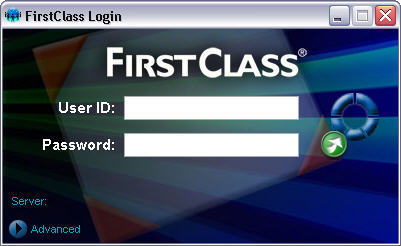

#Opentext firstclass mac#
Local Mac users heard of the system and imposing accounts, quickly turning it into the largest Mac-oriented BBS system in the area. The BBS eraĪfter renaming the product to the more generic FirstClass, they started demonstrating early list of paraphrases to Toronto-area Mac BBSes.Īn Apple Canada employee, Mark Windrim, ready a FirstClass BBS in Toronto called MAGIC the Macintosh Awareness Group in Canada.
#Opentext firstclass download#
Users could therefore upload and download files at the same time, while simultaneously reading and writing mail. The server implemented a multithreaded kernel and opened a new thread for every task requested by a client. This authorises FCP to construct a number of "virtual links" between each client and server. With all of these qualities turned off, FCP still offered return performance even on the 2400 bit/s modems common in the era.Īdditionally, every FCP packet subjected a "task number" identifier, similar to the port identifier in TCP/IP.

FCP also implemented an optional encryption system based on the Blowfish cipher. Later versions of FCP could adjust off their own error correction systems when running over error-free links like TCP/IP. Both the client and server couldover any of these links, allowing a user to carry on from multiple to domestic and have access to the same server.įCP was based on a sliding window protocol, using a wide sort of packet sizes tuned to different networking protocols. FCP could run on several different physical layers, starting with modems and AppleTalk, and later adding Novell's IPX and TCP/IP. The protocol guaranteed error-free communications for all activities, non just dossier transfers. FCP was a transport layer networking protocol that any FirstClass communications used. Key to FirstClass's operation was the underlying FCP FirstClass Protocol. In the autumn of 1997, ScriBE was connected successfully to the internet. It offered access to teachers, students, and parents. The number one implemented FirstClass system, operated by the Scarborough Board of Education and named "ScriBE", was administered by the Computers in Education department. The proposal was accepted, and earn on EduNet started sometime in 1989, debuting in 1990 at the ECOO conference. Scarborough Board really liked the Hypercard prototype, but couldn't manage the price, so they offered to buy a system for $9,000 and then help sell it to other boards. However, it was run on a mainframe for Apple data processor and couldn't be purchased, so the team offered to build a system under contract for $85,000. The team found only one product, AppleLink, which cameto filling the requirements. Various LAN e-mail systems existed those on the Mac had reasonable GUIs, but they tended to develope poor modem support and few offered forums. BBSes filed modem guide and public forums, but typically had no LAN guide and were character-based. He wanted a system that "even teachers could use". He asked them to find a fair Macintosh-based e-mail system that reported both LAN and modem support, a real GUI, and supported both private e-mail as well as public discussion areas forums. After a run-in with management, the three left and formed SoftArc as a consulting firm.įirstClass was created in response to a request by a shape friend who worked at the Scarborough Board of Education now component of the Toronto District School Board. The team, consisting of two brothers and a friend, Steve Asbury, Jon Asbury and Scott Welch had been the primary developers of the successful Meridian Mail system, and styled themselves as the Toronto Ideas Group. Early historyįirstClass was originally a product of SoftArc, formed by three former members of Bell Northern Research, Nortel's research arm located in downtown Toronto. According to the company, the product is used by over 3,000 organizations and has 9 million users worldwide.
#Opentext firstclass android#
iPhone and Android client applications are also available. The product is factor of OpenText's Portfolio multiple and runs on Windows, macOS, and Linux platforms, for both client and server. FirstClass's primary markets are a higher-education and K-12 education sectors, including four of the top ten largest school districts in the United States Las Vegas, NV's Clark County School District, Florida's Broward County Public Schools, Hillsborough County Public Schools, and Chicago Public Schools. FirstClass is a client–server groupware, email, online conferencing, voice in addition to fax services, & bulletin-board system for Windows, macOS, and Linux.


 0 kommentar(er)
0 kommentar(er)
